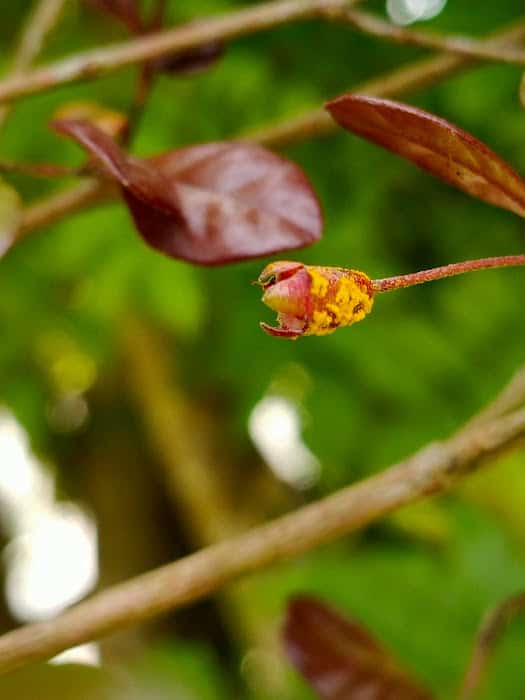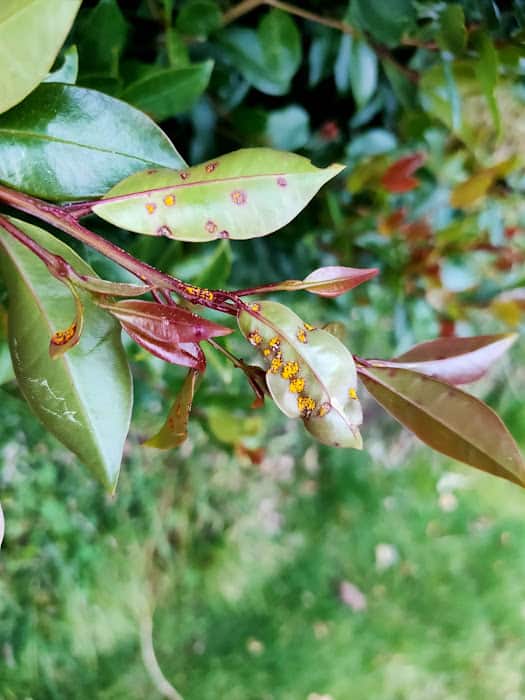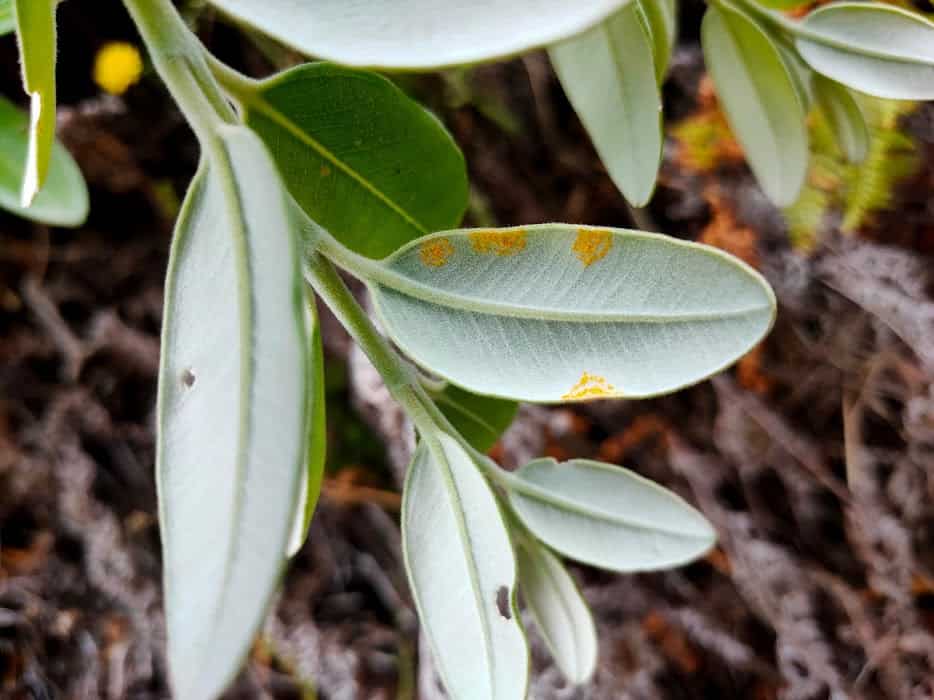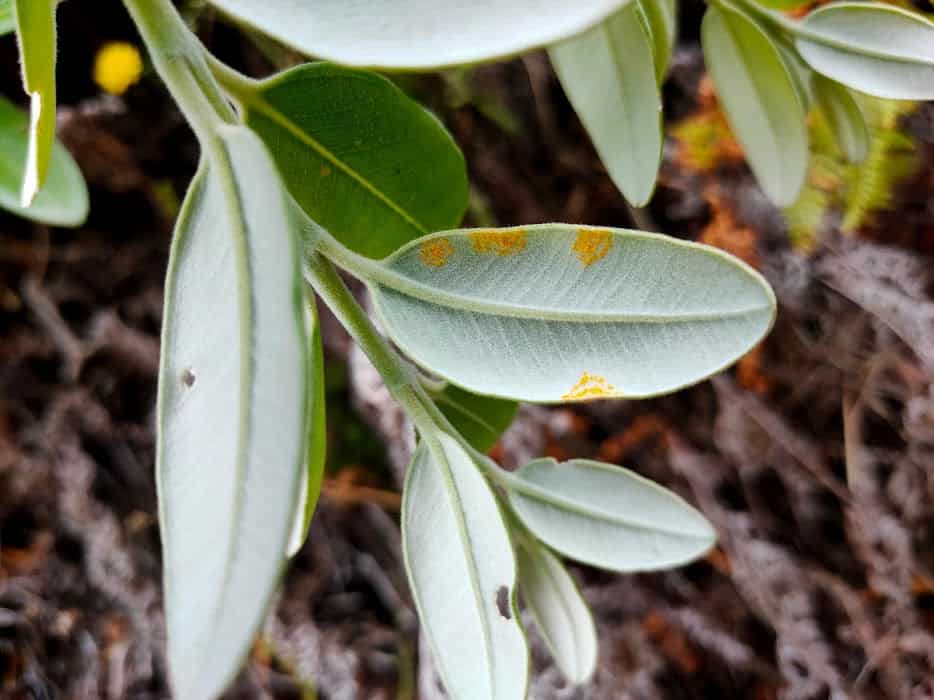By New Zealand Plant Producers Incorporated


A suite of tools and information to help plant nurseries manage myrtle rust outbreaks this summer has been released by New Zealand Plant Producers Inc (NZPPI).
This suite includes a beta version of the Myrtle Rust Climate Model app to enable plant producers to anticipate when myrtle rust is most likely to develop in their nurseries and so implement prevention practices.
NZPPI contracted HortPlus and Plant & Food Research to develop the model, which sits under an overarching Plant Disease Management Platform on the NZPPI website. Based on weather station data, the platform provides forecasts, weather summaries, rainfall data, growing day data and winter chill calculations. The Myrtle Rust Climate Model uses this data to predict the timing and intensity of myrtle rust risk at any given time. Producers can then take non-chemical or chemical action to prevent or manage an outbreak.
NZPPI biosecurity and technical manager, Kathryn Hurr says plant producers now have a range of management options available to them to help deal with myrtle rust.
“The new climate model gives producers a valuable tool to get ahead of the disease and know when the best times are to spray, trim or remove Myrtaceae species in their nurseries and to monitor any susceptible plants in adjacent areas.
“Myrtle rust, caused by the fungus Austropuccinia psidii, originates from climates more tropical than ours in Aotearoa New Zealand. Myrtle rust is very sensitive to our seasonal weather variations. This makes it easier to manage if we have real time climate data and do the right thing at the right time under the right conditions.”
The Plant Disease Management Platform and Myrtle Rust Climate Model is free for NZPPI members and, thanks to Ministry for Primary Industries funding, is free for other users until December 2023. The myrtle rust tool will be refined as plant producers test it and provide feedback.
Accompanying the climate model on the NZPPI website is the updated Myrtle Rust Management Protocol. This protocol sets out the actual steps for plant producers to take to prevent and manage the rust, including advice on plant survey procedures and fungicide use. It also includes a FAQ for garden retailers and landscapers so they in turn can provide advice to the general public.
“This advice timely given Government has proposed a Myrtle Rust Long Term Management Plan, which will mandate good practice biosecurity for those plant producers selling Myrtaceae species,” says Kathryn.

A way for plant producers to clearly prove that they have met biosecurity standards is to get certified under the Plant Pass scheme. Plant Pass is a new voluntary biosecurity scheme available to all types of plant producers, from small community nurseries to large commercial enterprises.
The myrtle rust tool and protocols support the myrtle rust module in Plant Pass. There is also a kauri dieback module, which enables kauri producers to prove they have met the requirements of the National (Kauri Dieback) Pest Management Plan.
When plant producers register for Plant Pass, they receive the information and tools to avoid, identify and manage biosecurity hazards plus ongoing support. Once they complete the core standard, plus any necessary module such as the myrtle rust module, they will be independently audited to become Plant Pass certified. Plant producers that already have a similar biosecurity certification such as Kiwifruit Plant Certification Scheme, Grafted Grapevine Standard, Avocado High Health Scheme, can apply to have this recognised through Plant Pass.
NZPPI manages the Plant Pass scheme. NZPPI CE Matt Dolan said Plant Pass was a one-stop shop to enable plant producers to meet the growing need for good biosecurity practice now expected by plant buyers and regulators.
“These expectations come as plant buyers sign up to the Plant Buyers’ Accord and the Government introduces more disease management plans.
“By signing the Accord, plant buyers demonstrate that they will not accept conduct or culture that undermines good biosecurity practice. Any plant producer that cares about good biosecurity is encouraged to register with Plant Pass and any organisation that has an influence on plant purchase decisions is encouraged to join the Accord.”
Visit Plant Pass for more information.

